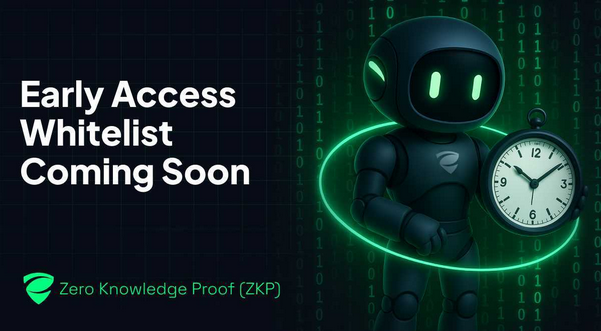Most blockchain systems are built for speed. Transactions must finalize instantly, consensus must be reached quickly, and certainty is often forced before it’s earned. But knowledge doesn’t always work that way. Zero Knowledge Proof (ZKP) introduces a new perspective: sometimes “not sure yet” is the healthiest response. On the zero knowledge proof blockchain, claims are not rushed into finality.
Instead, they pass through structured challenge windows and knowledge auctions that give participants time to verify, dispute, or refine them. With the whitelist approaching, early adopters can join a protocol where uncertainty isn’t a weakness, it’s a design feature.
Why Instant Consensus Doesn’t Always Work
Traditional blockchains thrive on immediate resolution. Blocks are mined, transactions confirmed, and consensus is reached within seconds. But when applied to knowledge, this rush creates problems. Truth is not always obvious at the moment a claim is made. Evidence may surface later, new interpretations may arise, and rushing to closure risks embedding error.
Zero Knowledge Proof (ZKP) solves this by rejecting the obsession with instant consensus. Instead of treating doubt as a flaw, the system recognizes it as part of the truth-finding process. By giving claims time to breathe and be tested, Zero Knowledge Proof (ZKP) ensures that what survives on the zero knowledge proof blockchain is stronger, more reliable, and more accurate.
Challenge Windows and the Knowledge Auction
The core of this design is Zero Knowledge Proof (ZKP) layered challenge windows and knowledge auction dynamics. When a claim is submitted, it doesn’t get validated immediately. Instead, it enters a period where verifiers can support it or challengers can stake against it. These disputes are resolved through knowledge auctions, where participants put Zero Knowledge Proof (ZKP) crypto coins on the line to back their positions.
This process gives claims space to evolve. Some claims may survive without challenge, earning rewards quickly. Others may attract disputes, forcing deeper analysis and a longer resolution. By integrating time into the protocol, Zero Knowledge Proof (ZKP) turns “not sure yet” into a productive pause that leads to stronger truth outcomes.

Why Whitelist Participants Will Shape This Feature
For early participants, the whitelist is more than token access. It’s a chance to be the first actors in a system that values nuance. Whitelisted members will participate in the earliest challenge windows, test the first claims, and experience how “not sure yet” is built into the protocol’s DNA.
Unlike many crypto presale 2025 projects that emphasize speed and hype, Zero Knowledge Proof (ZKP) prioritizes accuracy and integrity. Early users who embrace this thoughtful design will gain both credibility and influence in the ecosystem. They’ll set the precedent for how patience and skepticism translate into long-term rewards on the zero knowledge proof crypto network.
Last Say
In an industry obsessed with speed, Zero Knowledge Proof (ZKP) offers something rare: patience. By embedding challenge windows and auctions into its protocol, Zero Knowledge Proof (ZKP) turns uncertainty into a feature, not a bug. “Not sure yet” becomes a valid stage in the journey toward truth, ensuring that what is finally recorded on-chain carries real weight.
For those ready to move beyond speculation and hype, the whitelist is the gateway. It’s the first chance to join a blockchain where accuracy matters more than speed, and where waiting for truth pays. In Zero Knowledge Proof (ZKP), the future belongs to those who think before they decide.
Disclaimer: This is a Press Release provided by a third party who is responsible for the content. Please conduct your own research before taking any action based on the content.





